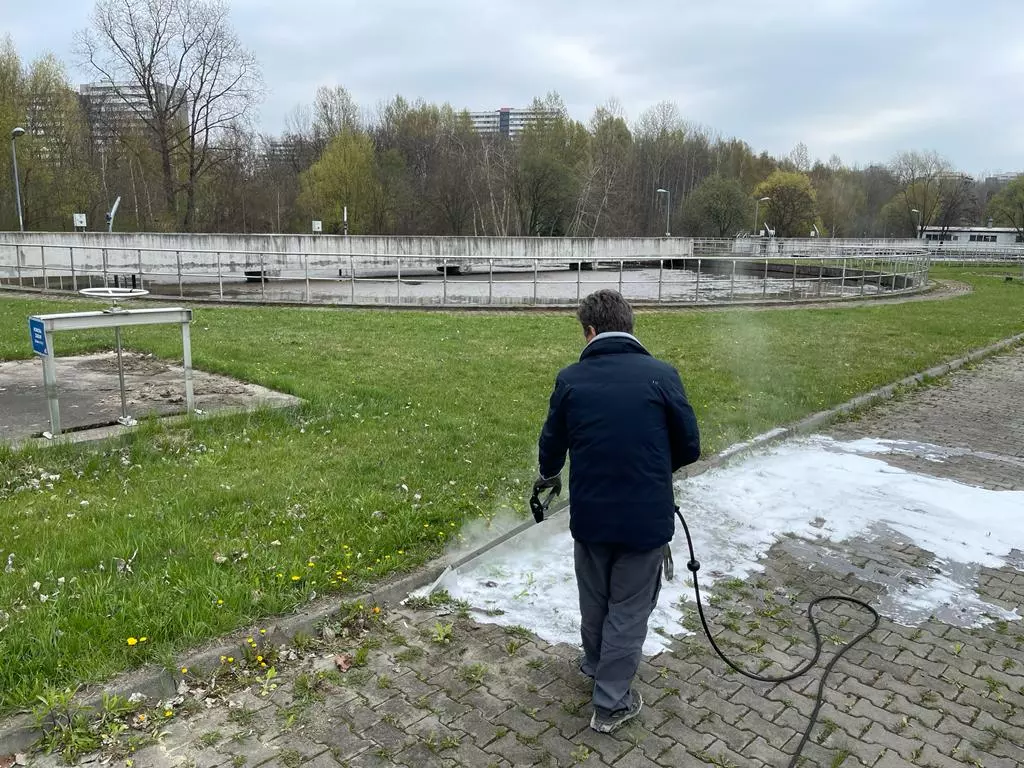It's no secret that herbicides can be harmful to the environment, plus they're costly, and weeds may develop a resistance to them. New research now suggests that farmers could get the same weed-killing results from a hot biodegradable foam.
In the past, scientists have tried killing weeds by scalding them with steam and/or hot water. This approach has only met with limited success, however, due to the fact that the heat simply escaped into the atmosphere before much of it was transferred into the weeds. What was needed was a substance that retained heat for a longer period of time.
That's where the Foamstream system comes in.
Developed by British agricultural company Weedingtech, it incorporates a liquid foam made of plant oils and sugars, which is mixed with hot water and sprayed via a hand wand directly onto weeds. The foam then forms a layer of insulation, keeping the heat on the weeds long enough for it to penetrate their leaves' outer surface, then travel down their stems and into their roots – effectively killing them. Once its job is done, the foam dries up and biodegrades into the soil.

As part of a study recently conducted by a team from the Agricultural University of Athens, Foamstream was used to control charlock mustard weeds (Sinapis arvensis) in select plots located in two olive groves in southern Greece.
In other plots in those same groves, the scientists also tried mowing the weeds, covering them with mulch, applying pelargonic acid (a natural herbicide) and applying glyphosate (a commonly used synthetic herbicide) – as a control, they also left the weeds in some of the plots untreated.
At the end of the treatment period, it was found that Foamstream reduced weed biomass by 81 to 96 percent, as compared to mowing, mulching, pelargonic acid, or no treatment. Its performance more or less matched that of glyphosate, which is the sort of eco-unfriendly herbicide it's intended to replace.
The scientists have stated that more research still needs to be conducted, including an assessment of how well the technology works on other types of plants under other conditions. A paper on the study, which was led by Nikolaos Antonopoulos, was recently published in the journal Smart Agricultural Technology.
Source: Weedingtech via New Scientist




